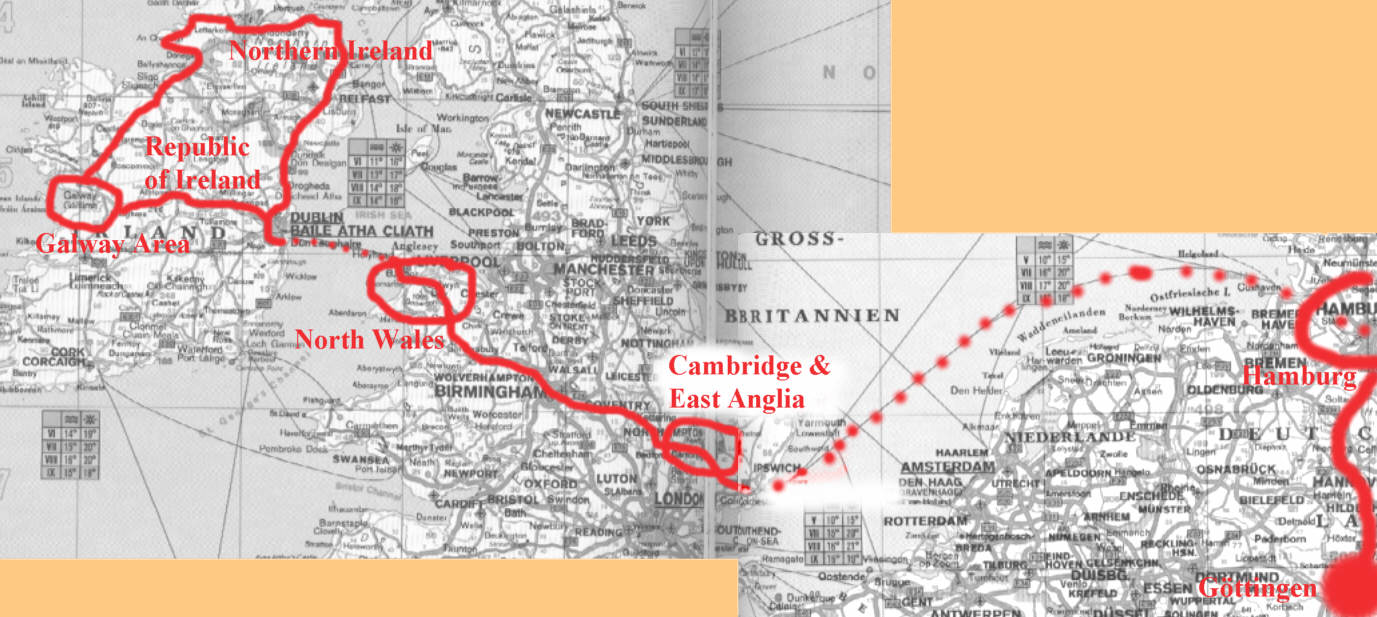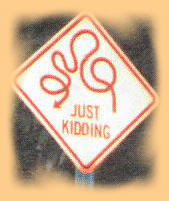
The Hamburg-Harwich ferry route is a very convenient way to take your car to Great Britain, if your starting point lies in northern Germany. The vessel leaves Hamburg at 5:30 PM and arrives at Harwich harbor at noon on the following day. My cabin was fully wheelchair-accessible, the bathroom being even better equipped than my own one here at home. I paid 600 DEM (ca.340 US-$) round trip. Not exactly a bargain, but the company operating the route is Danish, and both Germany and England as well as Denmark have extremely strict safety regulations requiring the ships to meet the highest standards possible and the staff to be trained in the best way possible. Thus, as one could have expected, the service was excellent, and the staff had no difficulty whatsoever in dealing with the needs of independently-travelling wheelchair users.
The option to get from Mainland Europe to Ireland by a combination of 2 ferry trips and a drive across England is called "Landbridge". For this, many ferry companies offer package deals. It is also possible to reach Ireland with just one ferry passage from ports in north-western France. This is cheaper, but depending on your starting point and travel route, you will have to add fuel costs and road toll (motorways in France) to the ticket price in order to make a correct comparison. In Ireland I spoke to a couple of Germans who took that one-ferry route, and they weren't exactly pleased with the ferry they were on, calling it a "piece of junk".
If you are disabled, it is always advisable to call in advance and inquire as specifically as possible about facilities and services for your personal needs.
The drive from Harwich to the Welsh ferry ports is quite a long one. Going all the way from Harwich to Holyhead in North Wales will require at least 7 hours of driving time. However, North Wales is an incredibly beautiful place, and staying there overnight with some time set aside for sightseeing/hiking is definitely no waste of time -- rather it will be one of the highlights of your trip, and you might even (like myself) decide to spend some addidtional time in the area!
Flying to Ireland and renting a car definitely is an option well worth considering, but it does not exist for wheelchair users, since in all of Ireland there isn't one rental company offering rental cars with hand controls. Quite embarassing for a member state of the European Union.
There are two companies offering ferry services between Wales and Ireland, Stena Lines and Irish Ferries. You also have the choice between "normal" ferries (4 hours) and supermodern high-speed ferries (1 1/2 hours), which of course have higher ticket prices. Because I didn't know my return date, I wasn't able to take advantage of one of the package tariffs and ended up paying the outrageous round-trip sum of 550 DEM (ca. 300 US-$) for the Stena H.S.S. fast ferry linking Holyhead (GB) with Dun Laoghaire (IRL). At least the facilities for the disabled were very good -- once again, no problems for wheelchair users travelling independently.
If you plan on travelling to Ireland by car and ferry, it might be a good idea to check for rates at a good travel agency. They might be able to dig out some discount for you, especially in off-season periods. For disabled travellers, booking through travel agencies can be risky, as the information on your disability-related needs might not be processed properly. At least have them issue to you a written statement confirming that they reserved a wheelchair-accessible place/service for you. I still recommend the direct approach, as I have lots of bad experience with unexperienced/incapable/irresponsible travel agents.


